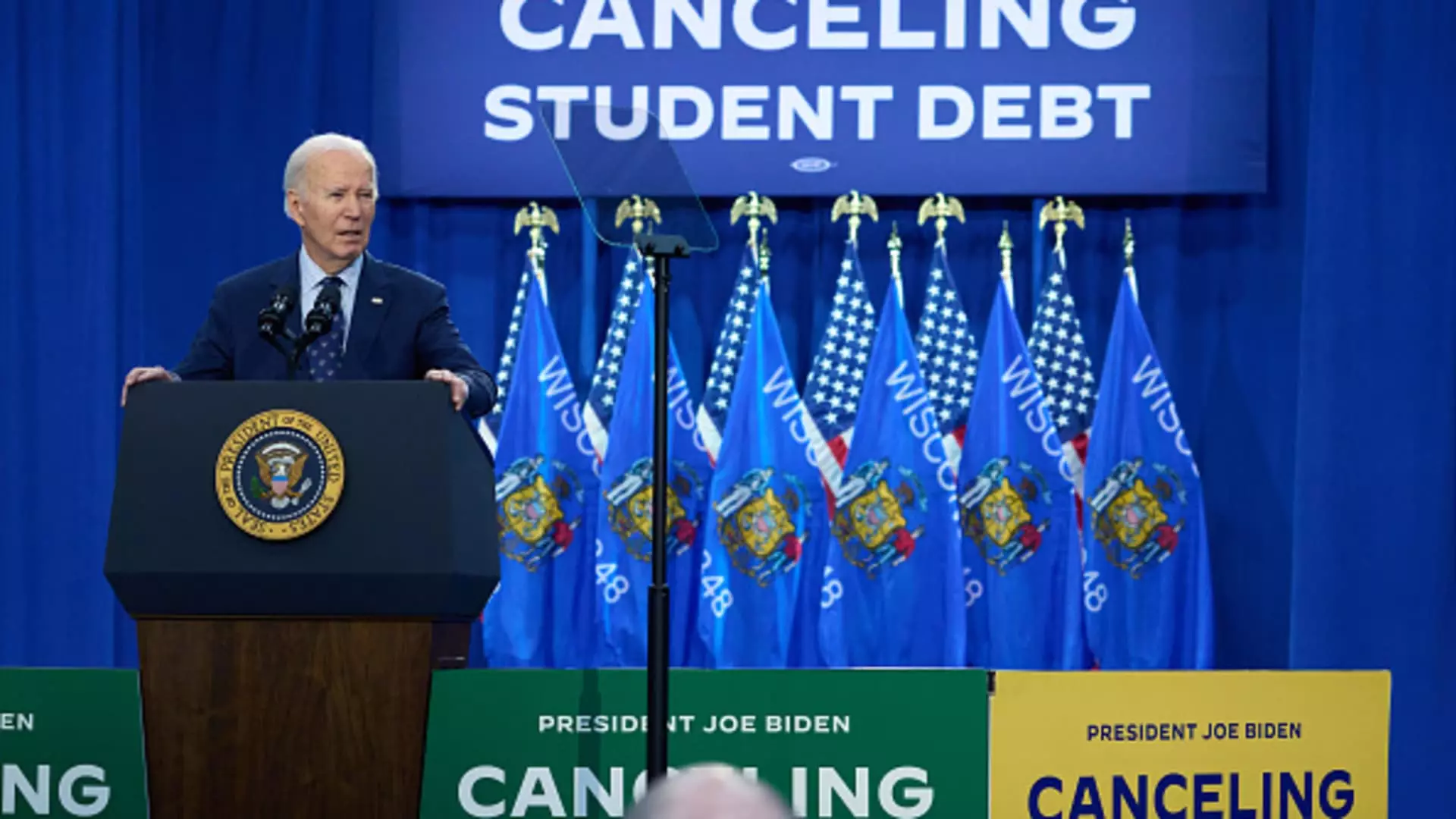President Joe Biden’s administration is considering forgiving the debt of millions of federal student loan borrowers, which could come into effect just weeks before the upcoming election against former president Donald Trump. The U.S. Department of Education revealed in the Spring 2024 Unified Agenda that the final rule on student loan relief would be published sometime in October.
According to higher education expert Mark Kantrowitz, the administration might not be able to implement the program until July 2025 due to the timeline of regulatory changes. However, there is potential for the department to act sooner by announcing the relief in the Federal Register. Kantrowitz predicts that the rule will be published in early October to spark a conflict between Democrats and Republicans over the issue of forgiving student debt during the election.
Conservatives have raised concerns about the fairness of forgiving the debt of individuals who have received a higher education, as it would ultimately burden taxpayers with the associated costs. Ryan Walker from Heritage Action for America stated that forcing all Americans to take on the debt of a select few is unconstitutional and an unfair election year tactic.
Walker criticized Biden’s approach to student loan forgiveness as an illegal and backfiring gimmick that could potentially have consequences at the ballot box. Nearly half of all voters consider canceling student debt an important issue in the upcoming elections, according to a survey conducted by SocialSphere.
The survey also revealed that 70% of Gen Z respondents view student loan forgiveness as an important issue, along with large percentages of Black and Hispanic voters. Interesting, 49% of surveyed Gen Z and millennial Republicans support the idea of erasing some or all outstanding education debt, highlighting bipartisan interest in the issue.
Former president Donald Trump, on the other hand, has been vocal in his opposition to student loan forgiveness and has proposed cuts to existing loan relief programs. He aims to eliminate the U.S. Department of Education’s loan forgiveness initiatives and slash the department’s budget, signaling his disapproval of such policies.
Following the Supreme Court’s rejection of Biden’s initial loan cancellation attempt, his administration has been working on a revised plan that could benefit up to 20 million borrowers. Despite efforts to target the relief more specifically, critics argue that it resembles the previous plan. Missouri Attorney General Andrew Bailey accused Biden of attempting to override the Constitution with his relief program.
Republican-led states, including Missouri, Arkansas, Iowa, Kansas, Nebraska, and South Carolina, have filed lawsuits against Biden’s debt relief efforts, arguing that he exceeded his authority and that the move would impact lenders negatively. Kantrowitz anticipates more legal challenges once the new student loan forgiveness plan is published, especially after the recent Supreme Court ruling against the Chevron doctrine.
With student loan forgiveness emerging as a significant issue in the election, Biden’s approach to relief programs and potential legal battles could influence voters’ decisions. The clash between forgiving student debt and conservatives’ opposition highlights the complexity of the issue and its political ramifications. As the election approaches, the outcome of these debates and legal challenges will undoubtedly shape the future of student loan policies in the United States.

